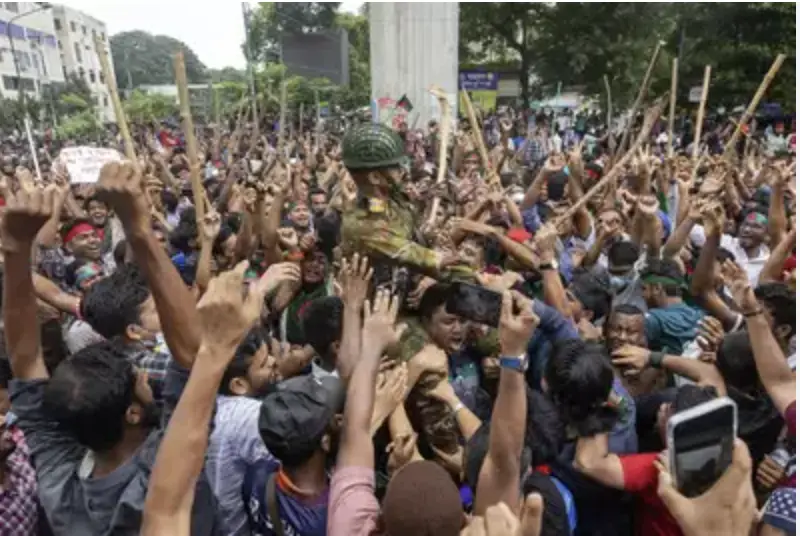Bangladesh Pushes for Sheikh Hasina’s Extradition Amid Political Unrest
Bangladesh Pushes for Sheikh Hasina’s Extradition Amid Political Unrest

Bangladesh protests.
This move comes in the wake of Foreign Secretary Vikram Misri's recent visit to Dhaka, where he held discussions with interim Chief Advisor Muhammad Yunus. Misri characterized the discussions as "frank and constructive," focusing on critical issues such as attacks on religious minorities in Bangladesh and Sheikh Hasina’s stay in India. Yunus voiced concerns about the disruptive impact of her public remarks from abroad, highlighting the tensions they generate.
Sheikh Hasina, 77, and her close allies, including ministers and advisors, are accused by the Dhaka-based International Crimes Tribunal (ICT) of "crimes against humanity and genocide." This marks a turning point in the political turbulence engulfing Bangladesh.
Speaking virtually to supporters in London, the former PM launched a scathing critique of the interim government. She accused her successor Muhammad Yunus of spearheading what she described as a “fascist regime” and blamed him for orchestrating the upheaval that forced her out of office. “Bangladesh is now under the grip of a fascist regime where people's democratic rights have been obliterated,” she claimed.
Hasina also highlighted the escalating violence targeting religious minorities. “Since August 5, the attacks on minorities, places of worship of Hindus, Christians, and Buddhists have been rampant. We condemn it,” she said, alleging that extremist groups operate freely under the interim administration.
As political tensions deepen, the focus shifts to the unfolding extradition process and its potential to reshape the nation’s political landscape. Both domestic and international observers are monitoring these developments closely.
More to follow.
